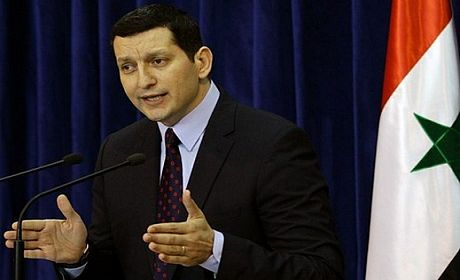More Officials Probably Leaving Syrian Government

Since the outset of the unrests in Syria, there have been few officials who have separated from the ruling military or political structure and joined the opposition. During the past 24 hours, there have been rumors about Jihad al-Moghadassi, spokesman of the Syrian Foreign Ministry, leaving this country and separating from Bashar Assad. What impacts, in your opinion, will such issues have on the current political and security trend in Syria?
There are several points in the political literature of Syria. When we talk about the necessary conditions for the victory of a revolution or a social movement, studying two necessary conditions and one sufficient condition becomes certain, so that based on them the movement, revolution, or great social change can achieve victory. These three conditions are:
1. Popular dissatisfaction in a way that would lead to the convergence of people's ideas to demand fundamental change. In other words, the first condition is that people must be dissatisfied and reach the conclusion that in order to reach the desired outcome, a complete change in the status-quo is needed.
2. Another condition is organization and leadership. There are elements like ideology and leadership which can organize this popular dissatisfaction into effective forms.
3. Beside these two necessary conditions, one sufficient condition is also needed and that is the weakness of suppression. In other words, when middle-ranking and senior officials of the government leave its ruling structure and lose their hopes for sustainability of the present situation, they will join the rival camp or, at least, stop their support of the present government. What has caused Jihad al-Moghaddasi, of course if this rumor proves to be correct, or other officials working in Assad's government to separate themselves from the ruling structure is the element of weakness of suppression which has created disappointment with regards to the maintenance of the present situation. Such cases have also happened in Syria before. But it seems that in Syria, the middle and senior directors are increasingly joining this trend and we will possibly hear about the separation of more officials in the future.
Some reports mention that Jihad al-Moghaddasi has fled to Lebanon. How would you assess the role of the anti-Syria forces established in Lebanon in encouraging people to leave Bashar Assad's government?
One point that should be considered is that anti-Syria views have become more visible in Lebanon. Therefore, liberal groups affiliated with the West in Lebanon have the necessary potential to take such measures. Based on this view, it can be expected that Jihad al-Moghaddasi has fled to Beirut with the help of these groups and then, based on the Reuters report, to London.
What is the reaction of the Syrian government with regard to such internal rifts?
The position of the present Syrian government is obvious. The government, in such cases, has always dismissed such people and pretended that it has been the decision of the government rather than the official leaving the government himself. But it seems that such measures can no longer respond to public opinion.
Vladimir Putin, Russia's President, has visited Turkey following his serious differences with this country over Ankara's position with regard to Syria’s domestic issues. This is while, despite the differences between the two countries over the issue of Syria and also the deployment of Patriot missiles in the Turkey-Syria border, both sides have reiterated that the unrests in Syria have not been the axis of bilateral talks and negotiations. What is the reason behind such an approach?
The recent meeting between the leaders of Turkey and Russia was a sideline meeting for the Syrian crisis and the main issue was to repair damaged relations between Turkey and Russia. It is natural that in such a meeting, the shadow of the Syrian crisis will have fallen over the decisions of both leaders. Today, Syria is considered as the last bunker for Russia in the Arab Middle East, and if Russia loses this bunker and Syria becomes affiliated with the West, Russia’s southern borders will be faced with serious threats, bearing in mind that a powerful government like Turkey’s also exists in its neighborhood.
The deployment of the Patriot missile system in the border area does not worry Syria much. Basically, Syria has a powerful missile system which is not a threat for the security of Turkey or any other country. Therefore, deployment of such missiles and the growing number of western bases in Turkey, Iraqi Kurdistan, and Iraq itself can be meaningful for Russia and Iran. Thus, while Turkey and its Arab and western allies demand Assad's resignation, Putin, the powerful Russian, taking into consideration the current analysis of Syria's future in his meeting with Erdogan, does not want to take a position in dealing with Turkey and the West so as to affect Russian-Turkish relations. Positions taken by the leaders of the two countries have shown that Turkey insists more on its positions and relations between Turkey and Russia, considering the existing Syrian crisis and the weight of Turkey for Russia, are so important that, during this visit, Turkish officials signed ten trade, energy, financial, and banking agreements. The signing of these agreements, after a two month delay in Putin's visit to Turkey with health problems as an excuse, indicates that Russia has comprehended that it can no longer trust Syria with Bashar Assad and lose even more points in the Middle East game by supporting him.
This is why Erdogan, after his meeting with Putin in Istanbul, once again returns to the issue of Syria and declares that the foreign ministers of both countries will cooperate with each other on the issue of Syria. This statement shows Erdogan's hope for Turkish diplomacy to reduce the resistance of the Russians with regard to the developments in Syria.

